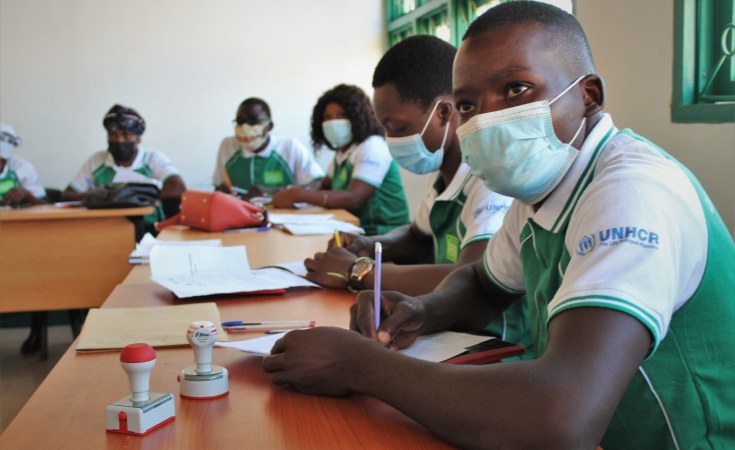The World Bank has estimated that about $9.3 billion is required annually to finance the education of refugee children in low and middle-income countries around the world.
In a publication titled "Refugee Education: Financing what matters," citing statistics from 2022, the Bank said aid to refugee education amounted to $2.6 billion, while host governments and philanthropists contributed $2.4 billion, leaving a deficit of nearly 50 per cent.
According to the United Nations High Commission for Refugees, UNHCR, there are about 14.8 million school-aged refugee children who are out of school.
The World Bank emphasised the need for the inclusion of refugees in the education systems of their host countries.
"Three major questions arise: what does inclusion mean, why does it matter, and how do we get there? Inclusion refers to refugee children attending schools that are part of the host country's national public system, funded through government channels, and attended by both refugee and host community children together.
"The benefits of education for refugee children are clear. Quality education can lead to higher incomes, increased self-sufficiency, and reduced aid dependency. It can strengthen the ability of refugees to contribute to host countries and promote a sustainable return to and reconstruction of their countries of origin.
"There are positive social spillovers in the form of reduced child labour, early marriage and sexual violence, and better health outcomes. Yet, education can be provided through parallel systems or national systems; why should we focus on the latter?
"First, because of the protracted nature and scale of forced displacement, refugee situations tend to last many years or even decades, and refugee children will often spend the entirety of their schooling years in forced displacement. Refugee education is a developmental challenge.
"Second, the current approach is inadequate. Despite decades of concerted efforts from humanitarian partners, half of school-age refugee children are out of school. Parallel systems simply cannot respond to the scale of the need.
"Third, inclusion in national systems is more likely to result in formal accreditation and recognition of qualifications, making it easier for refugees to continue their education and find employment in the host country or their countries of origin.
"Inclusion is also important to promote social cohesion with host communities, improve equity in the education outcomes of refugees and host populations, and strengthen service delivery for both refugees and host communities in underserved areas where refugees are often located."
The bank identified inadequate financing as the key challenge to inclusion.
"A key challenge is adequate financing and appropriate financing instruments. A new report estimates that the annual cost of inclusive refugee education in low- and middle-income countries is $9.3 billion. In 2022, aid to refugee education amounted to $2.6 billion. While host government and philanthropic contributions accounted for another $2.4 billion, a financing gap of nearly 50 per cent remains.
"When financing is channelled through governments, it takes the form of investment financing, whereas the bulk of the costs of education are recurrent. Host countries will be reluctant to embrace permanent solutions without adequate and predictable financing, especially after refugee children are integrated and become largely indistinguishable from host community children.
"Another challenge is the status quo of existing refugee education systems. Transitioning from parallel to national systems is a monumental undertaking. It will require shifts in curriculum, changes in teacher and examination/certification policies, and the transfer of management and financing from humanitarian partners and NGOs to ministries of education.
"Finally, there are political and social challenges to inclusion. There is limited evidence of the aggregate impacts of refugee inflows on the education outcomes of host populations; where it exists, impacts are shown to be insignificant or positive.
Yet, integration of refugees into national systems could lead to social tensions resulting from perceived redistribution of limited funds and overcrowded classrooms, and policymakers have to respond to these negative perceptions."
It called for more developmental financing, adding that around $300 million is needed to reach 2.5 million children in low-income nations and that in middle-income countries, the costs are much higher but represent less than half of one per cent of public spending on education in high-income countries.
It also suggested the provision of instruments for predictable, multi-year, recurrent financing for refugee education.
Shift towards a rules-based approach to donor financing guided by the scale of need and host countries' ability to contribute.
Ensure that humanitarian solutions, where necessary, are inclusion-enabling and have a clear strategy for transitioning to national systems.


